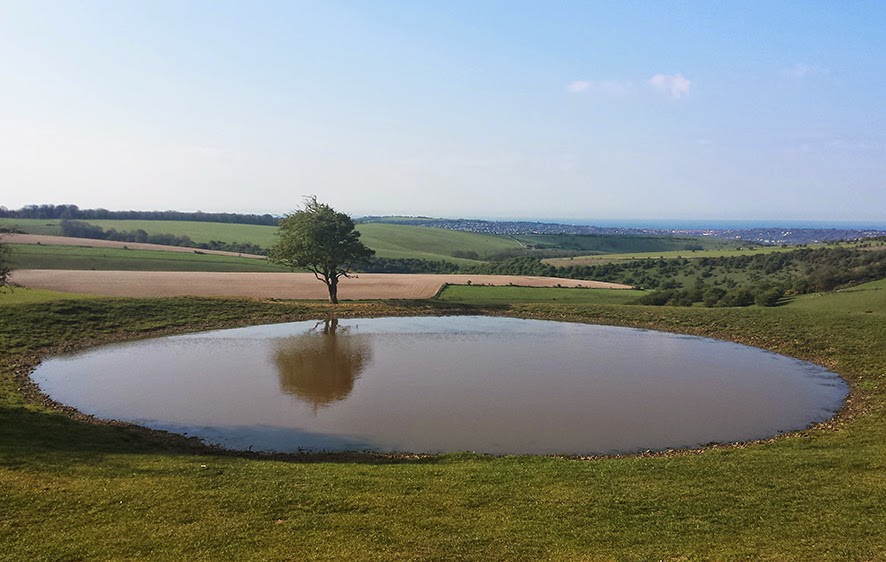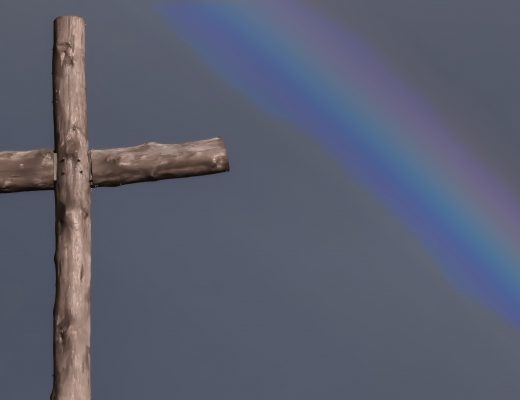Sunday 21st August / Sermon for The Point Church / Psalm 27
I am an art lover. All kinds of art. I have a degree in the History of Art and I love delving into the meaning behind artwork and the background, context etc. I love popping up to London to see an exhibition. Last year I took my daughters to see the immersive ‘Van Gogh Alive’ exhibition – I don’t know if any of you went – there they displayed huge digital versions of his paintings projected on to walls and ceilings in massive rooms, with text and music and commentary – really quite amazing.
I also like contemporary art, I used to be an artist and ran a gallery and I like finding interesting pieces of art from local artists. Even have a few Mark Steel prints on the walls at home!
There is something about art that appeals to us as humans, in different ways. I wonder if any of you have a favourite artist or piece of art?
One of mine is the Pieta by Michelangelo, a marble sculpture, which depicts Mary holding the dead Christ, it is so moving. However in the 1970s it was attacked with a hammer and after being restored now is displayed behind bullet proof glass!
The artwork we appreciate often draws us in. You know in the National Gallery in London in many of the rooms there are long benches in front of the bigger paintings where you can just sit and gaze at the pictures for as long as you want. Sometimes you find art students sat on the floor sketching them. And in the summer the benches in the rooms of old masters are often field with bored teenagers over from the continent, sat scrolling through their phones, surrounded by these amazing paintings, but would rather be on tik tok!
But there is something about looking in detail at the beauty of a fabulous painting. The more you look, the deeper you see into it. Some you can go up to (as close as possible) and see the brush strokes, others, impressionists for example you can see big globs of paint and the texture, in some you might see a finger print, some long lost mark of the artist. Others you have to be further away to see the picture. Close up it’s too much, but step back and there is a beautiful image to admire.
You know I chose Psalm 27 today because it is my favourite psalm, perhaps even has my favourite verse in the bible. And that is verse 4:
One thing I ask of the Lord, this is what I seek: That I may dwell in the house of the Lord, all the days of my life, to gaze upon the beauty of the Lord and to seek him in his temple.
Psalm 27 : 4
These lines are just so beautiful. I love the poetic way this is written, I love the picture. I love that the aim of the writer is to just be in God’s presence, always, forever, and reflecting on how beautiful, how awesome God is in that place.
To gaze upon the beauty of the Lord.
It reminds me of the seats in the National Gallery, with art lovers sat there pouring over paintings they have known and loved for so many years and yet still they come back to see them time and again. Or for some they’ve seen a print of a picture or seen it online and now they are seeing the real thing, for the first time in real life in front of their very eyes.
There is so much in this psalm:
It is so rich, there is so much declaration of who God is.
The Lord is my light and my salvation— whom shall I fear? V1
The Lord is my stronghold v1
V5 – I will be kept safe in God’s dwelling
I love that idea of being in God’s home reminds me of John 14, Where the Lord’s house has many rooms and Jesus says he goes there to prepare a place for us.
Vs 6 is about worship: I will sing and make music to the Lord.
Vs 11 – God is a guide and a teacher, leading us in the right way.
Vs 13 I can be confident in God and in who God is in my life and in this world
But in all this, this is the one thing. One thing I ask from the Lord, the Psalmist says, this only do I seek: To be in God’s presence, to gaze on the beauty of the Lord.
Regardless of anything else.
This is a Psalm that we know is attributed to David – as we’ve heard in this teaching series there are various writers but this one is ‘of David’. David who was king, had many victories in battle, riches, palaces, staff, wives, concubines… But this is the one thing he seeks – to just be with God. It’s so simple and yet so profound, so overwhelming.
How often do we do that? Simply seek to be with God?
You know back in the day, there were faithful Christians, sometimes monks, often called ‘mystics’ who would be bricked into a cell – as in a place for them to live – not a prison, a monks cell – a tiny space for them to live. Julian of Norwich was one of these, a woman who felt called to a life of solitude – she was an ‘anchorite’. Anachorein, meaning ‘to go apart’ and so she drew apart to contemplate God.
Anchorite’s cells have 3 openings. One into church so she could attend mass and receive communion, 1 to have food and drink brought to her and the slop bucket taken out and another into the street so that she could give wise counsel to those who sought it. But her and other anchorites reasons were simply to be in solitude Literally seeking God and gazing on the Lord. Julian wrote this:
God, of your goodness, give me yourself; you are enough for me, and anything less that I could ask for would not do you full honour. And if I ask anything that is less, I shall always lack something, but in you alone I have everything.
Julian of Norwich
Just God.
Now Julian became an anchorite because she had an encounter with God, where she was dying, on her sick bed and during that time she had 16 amazing visions of the Lord. She wrote them down and after such an amazing experience felt called to the life of an anchorite. She spent the next 20 or so years in her cell focussing on these visions, continuing to seek the Lord, she interpreted them and wrote her ‘revelations of divine love’ (she is actually credited with the first book written by a woman in the English language). And her writings continue to inspire people today. You might recognise the phrase: All shall be well, and all shall be well, and all manner of thing shall be well.
Now we’re not all called to the life of being bricked in a cell, I think you’d be arrested for helping someone do that!! But I spoke about this Psalm a few weeks ago at St Edward’s and I said to everyone, in simple terms all I want for us is to be able to say those words of David could be ours – if we all love the Lord so much that we could say: all we want is to be in God’s presence. To gaze upon the beauty of the Lord.
Because it is out of a love like that, that we will see transformation: In ourselves, in our churches and in others. Because you know we can put on fabulous events, and for us at St Ed’s have a funky new vision, but it is the presence of God in us that will draw people to want to do more than just come to an event and go away again, that will draw them in, like being drawn into a fabulous painting. Because there is something in us that draws them to want to know more.
One thing I ask from the Lord, this only do I seek:
that I may dwell in the house of the Lord all the days of my life,
to gaze on the beauty of the Lord and to seek him in his temple.
It’s an immersive surrounding experience..
When do we just gaze upon the beauty of the Lord? What does that look like?
Or are we just satisfied with our faith as it is?
Scrolling through our phones while faced with a masterpiece?
Who has seen Hamilton? Went to see it a few weeks ago. There’s a song in which 2 of the key characters sing about not being satisfied, and it’s a theme that plays out throughout – that sense of not settling, always seeking after more truth and justice and pioneering a way forward.
Are we just satisfied? Or are we seeking after more of God, seeking to gaze and to see and to dwell in that place?
You know David’s words in these few verses remind me a bit of Moses, who was not satisfied – he always wanted more of God. Even when he’d been in God’s presence he still asked to see God’s glory (Exodus 33). Like David, saying this is all I seek God. Just you. Let me gaze upon you. When Moses had been with God up the mountain, his face shone and people saw it. When we spend time with God so much that it changes us, others will see that and be drawn to it.
John Wesley famously, whilst he was already a Christian and a minister no less, had an encounter with the HS that left him with his heart ‘strangely warmed’ and transformed his life and his ministry. He is quoted (arguably) as saying, when asked why people come to see him speak, he said something along the lines of: – ‘set yourself on fire and people love to come and watch you burn’.
It is out of this we will grow. People will be drawn to us, and to the church.
They will experience the Lord for themselves, begin their own journey of faith. They will commit to Jesus and to his church. They will devote their time and their skills and their finances…
Last week after our service someone came up to me with a prophetic word and they simply said ‘who can lift the veil’. Now with any prophetic word we should weigh it for ourselves, and so I prayed into it and I felt God show me 2 things.
The first is kind of obvious, but it is that there was in the old Jewish temple a curtain, a veil or something that kept the central part of the temple sacred, it was where God resided, and only the Chief Priest could go in, and only at key times too.
There was a barrier between the people and God.
That same barrier that must have faced David, was his longing for God’s presence because he could not get as close as he wanted?
Now, when Jesus died we read that the curtain was torn in two, that barrier was taken away once and for all, thanks to Jesus there is no barrier between us and the Lord.
But the other thing I was reminded of is that before I was ordained I actually did a placement at St Edward’s as part of my studies. And I spent quite a bit of time with Fr Denis the then priest, and we had a really interesting conversation about worship where he said that: where there is a thick curtain between heaven and earth our role is to remove that to peer in
And you know it really struck me and strikes me again now that for many people there is still a barrier, a curtain if you like, between the reality of heaven and the reality of earth. And it’s something that Matt Redman has talked of too – a sense that in worship we are taking a metaphorical telescope and seeing a little bit more of the true reality of the kingdom. So that as we too seek to gaze upon the Lord, in a place of worship – whether that is a physical place like a church or a space in our own homes, or our own hearts, that we begin to see more of God, of the detail – like gazing on a beautiful painting.
God is not behind a curtain, or behind bulletproof glass, so we don’t have to lift a physical curtain to do so, but there may be a a veil on our own hearts. And more than that that we have a role to lift that metaphorical curtain for others so they too can see in, and get to gaze upon the face of the Lord.
So as I draw us to a close I want to ask you what does gazing on the beauty of the Lord look like for you? How are people seeing God through you? How are you lifting the curtain to let others see in?
We’re going to have a song now and I want to encourage you to just take a moment to gaze on the Lord, whatever that looks like for you. Listen to the words, seek the face of God, open your heart and listen to what God is saying – whatever you want. Let’s just sit and be in God’s presence. Because we can.
Psalm 27 finishes with:
Wait for the Lord; be strong and take heart and wait for the Lord.
Amen





No Comments